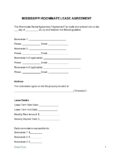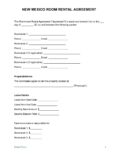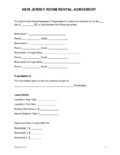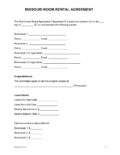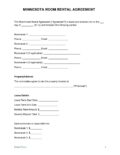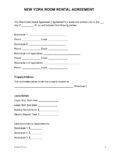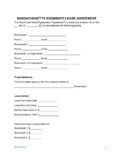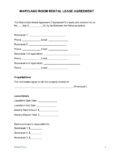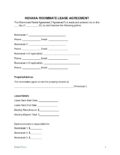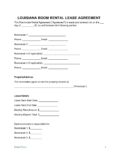Rental Application Form – Landlords in Mississippi use this form to obtain written consent from potential tenants before signing a roommate rental lease agreement.
Landlord Tenant Laws
- Single Tenant on Lease: The single tenant is solely responsible for the rent, maintenance, and compliance with the lease terms.
- Multiple Tenants on Lease (Joint Liability): All tenants are equally responsible for the full rent and lease obligations. If one tenant doesn’t pay their share, the others must cover the entire amount. [1]
